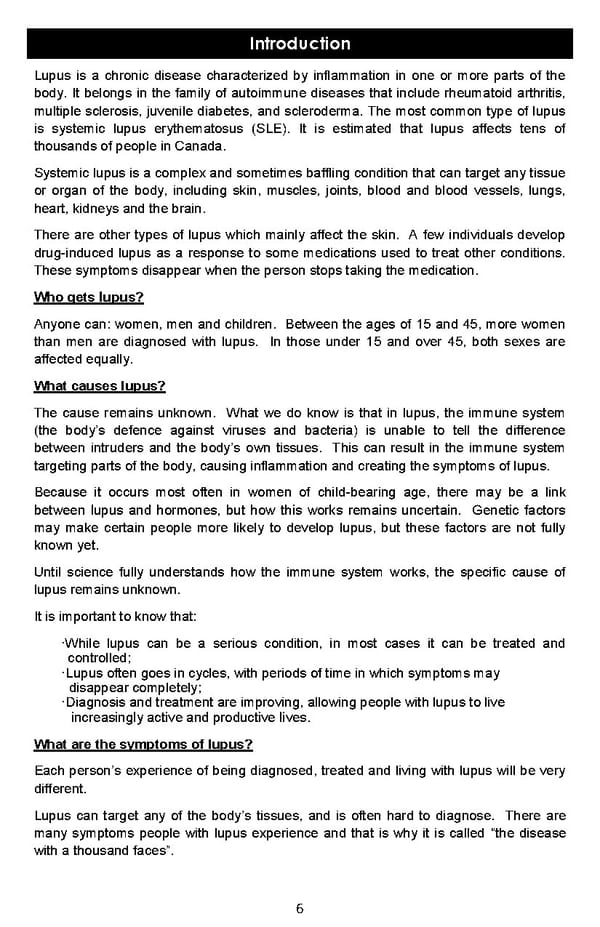Introduction Lupus is a chronic disease characterized by inflammation in one or more parts of the body. It belongs in the family of autoimmune diseases that include rheumatoid arthritis, multiple sclerosis, juvenile diabetes, and scleroderma. The most common type of lupus is systemic lupus erythematosus (SLE). It is estimated that lupus affects tens of thousands of people in Canada. Systemic lupus is a complex and sometimes baffling condition that can target any tissue or organ of the body, including skin, muscles, joints, blood and blood vessels, lungs, heart, kidneys and the brain. There are other types of lupus which mainly affect the skin. A few individuals develop drug-induced lupus as a response to some medications used to treat other conditions. These symptoms disappear when the person stops taking the medication. Who gets lupus? Anyone can: women, men and children. Between the ages of 15 and 45, more women than men are diagnosed with lupus. In those under 15 and over 45, both sexes are affected equally. What causes lupus? The cause remains unknown. What we do know is that in lupus, the immune system (the body’s defence against viruses and bacteria) is unable to tell the difference between intruders and the body’s own tissues. This can result in the immune system targeting parts of the body, causing inflammation and creating the symptoms of lupus. Because it occurs most often in women of child-bearing age, there may be a link between lupus and hormones, but how this works remains uncertain. Genetic factors may make certain people more likely to develop lupus, but these factors are not fully known yet. Until science fully understands how the immune system works, the specific cause of lupus remains unknown. It is important to know that: ·While lupus can be a serious condition, in most cases it can be treated and controlled; ·Lupus often goes in cycles, with periods of time in which symptoms may disappear completely; ·Diagnosis and treatment are improving, allowing people with lupus to live increasingly active and productive lives. What are the symptoms of lupus? Each person’s experience of being diagnosed, treated and living with lupus will be very different. Lupus can target any of the body’s tissues, and is often hard to diagnose. There are many symptoms people with lupus experience and that is why it is called “the disease with a thousand faces”. 6
 Living Well With Lupus Facts Booklet Page 5 Page 7
Living Well With Lupus Facts Booklet Page 5 Page 7